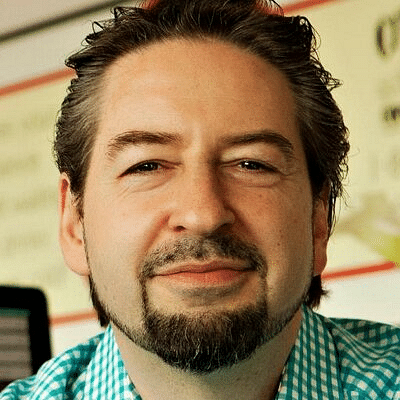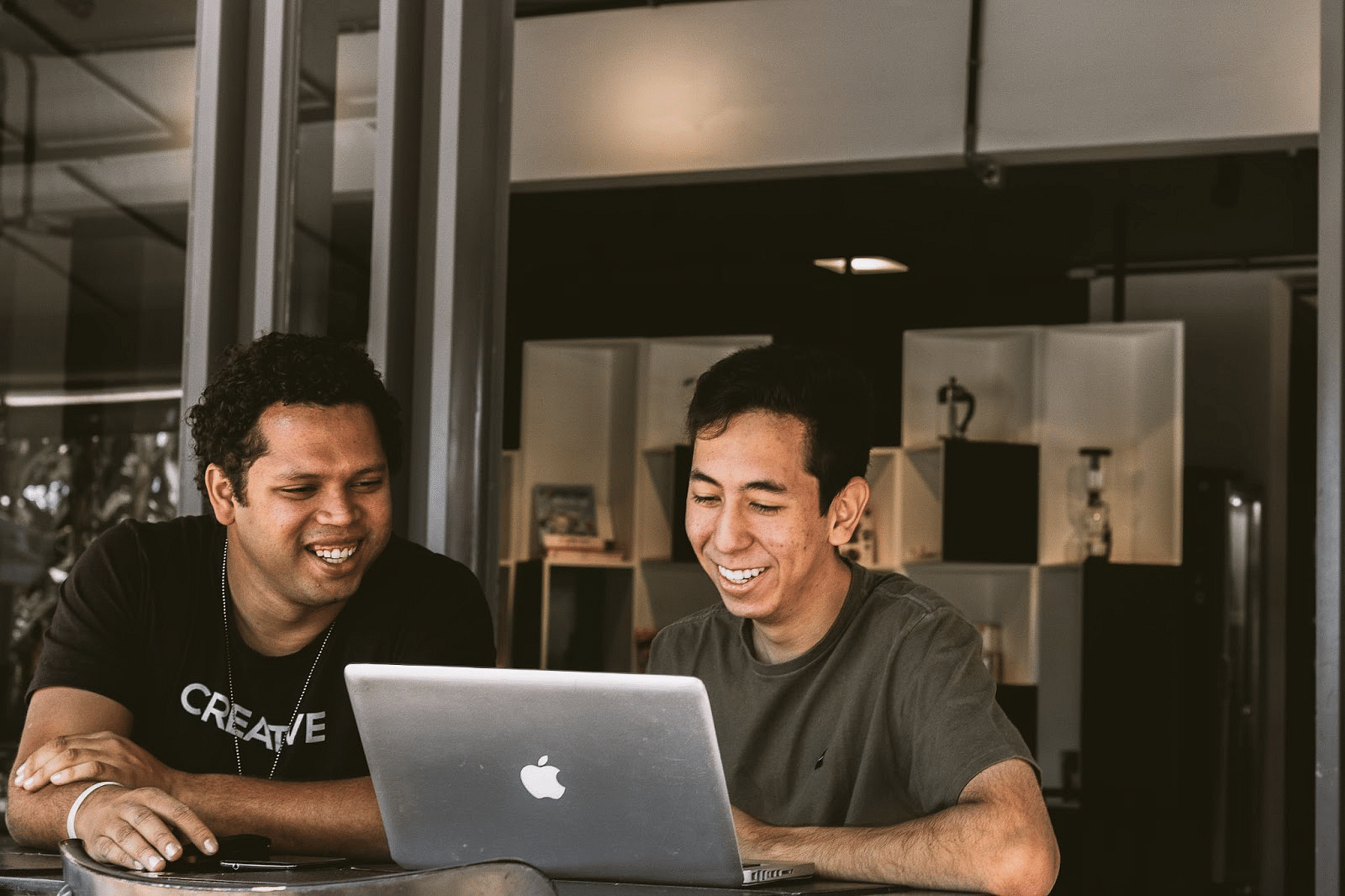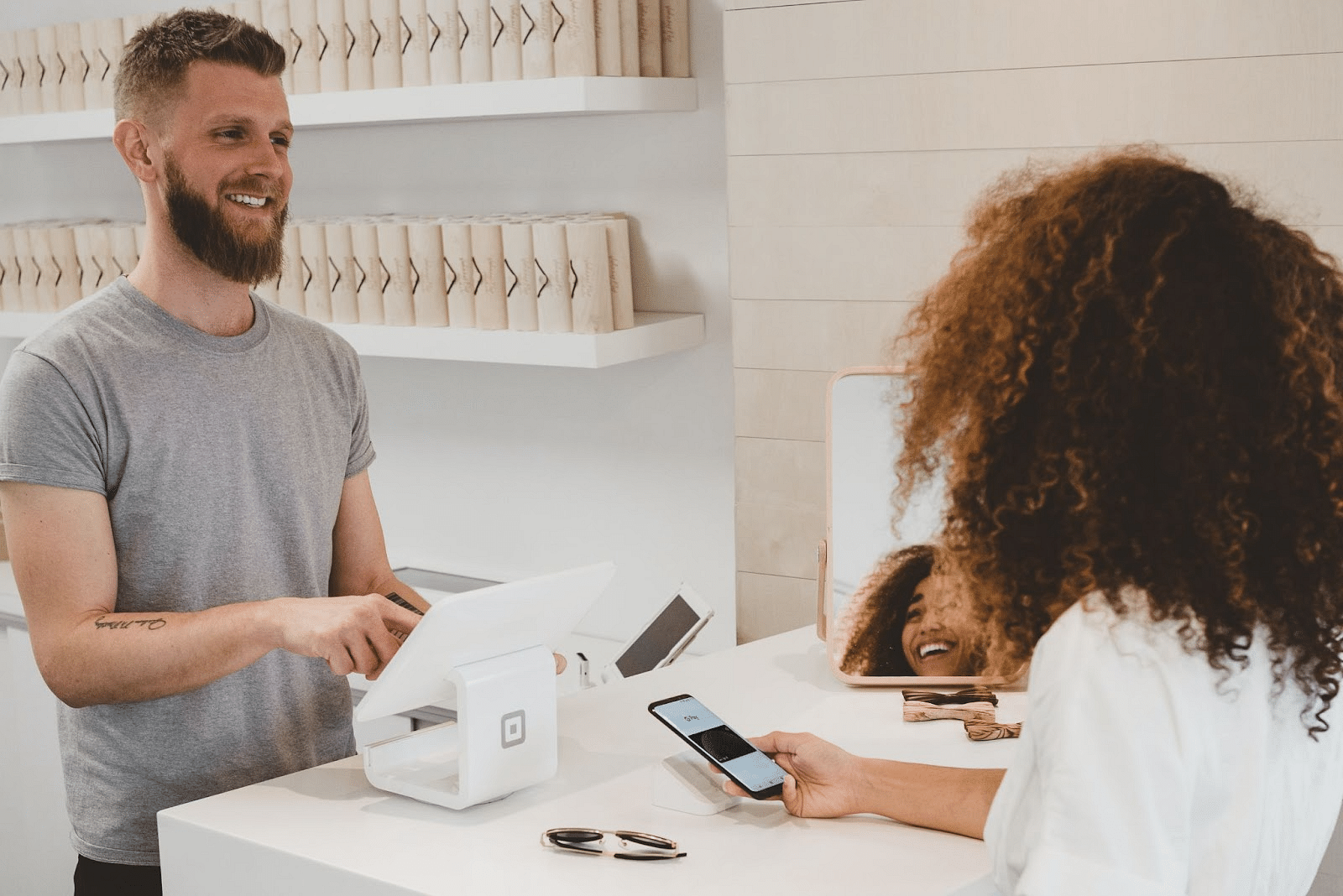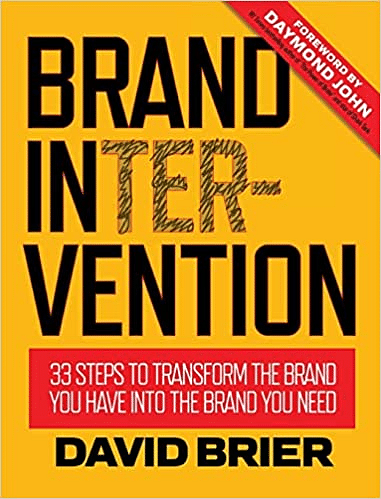
To rise above the mundane, you need to be different — not better
By Jim James, Founder EASTWEST PR and Host of The UnNoticed Entrepreneur.
David Brier is a native New Yorker and describes himself as the “slayer of the mundane.” He is also the author of the international best-selling book, “The Brand Intervention.” In the new episode of my podcast, he talked about brand intervention and how it can help the unnoticed entrepreneur.
Image from LinkedIn
Standing Out in the Sea of Sameness
We live in a world where there’s no shortage of people and companies who are saying that they’re great, they’re the best, and they have everything that you’ve been looking for. We hear a lot of these background noises that sound similar. And David calls it the “sea of sameness” — where you can hardly differentiate this company from that company. There’s an enormous amount of similarity to the point that everything seems kind of redundant.
This leaves companies and individuals having to compete on price. However, lowering the price to offer a differentiating factor is a terrible business model. To get off that commodity slide where there’s no competition except for the price, you have to understand that different is better than better.
Everybody is claiming that they’re the best. However, it’s the different that will always trump. For you to get noticed, you have to have something that no one else quite has; you have to look at and rise above that benchmark of expectation.
Every potential customer has been trained based on what the market has thrown at them — they have a certain level of expectation. Above that line is acceptable. Below it is not even a contender. The question is, how far north from that line can you go? Because once you get into that space, you will be able to control the dialogue and navigate the conversation. You will realise, How come no one else has thought of doing this before?
Real-life Examples
As an example, David discussed a telephone company that he branded.
When he observed the dialogue that everyone in that industry was having, everybody was offering the same-sounding package of internet service. Then he looked at how they should position their messaging. He reviewed the company’s assets and directed them so that they would be talking more about the outcomes than the technologies.
Image from Unsplash
This was one of their points of distinction. They didn’t talk about how many gigabytes can they provide to people; rather, they talked about how many shows people can watch, how fast is the upload and download time, and things to that effect. Apart from that, they also reframed the typical “Here’s your monthly subscription rate” statement. They went for, “You can get all this for 79 cents a day.”
Another example is the hotel chain, DoubleTree. There was nothing special about them, but they did one thing that no other company did in their space — they made sure that when you check in, you get a warm chocolate chip cookie. Now, they’re giving out 65,000 chocolate chip cookies a day. The cookie may cost about 4 cents. However, whenever their cookie gets photographed and shared, they get free public relations (PR) exposure.
If you want to get noticed, you need to know all these little tipping points — these little triggers — that will propel your business beyond the customers’ level of expectation. In a typical hotel, the staff may only be offering assistance to bring your luggage upstairs. This is the benchmark. What DoubleTree decided to do might seem like a trivial thing. But it did offer warmth and even helped bring back fond memories that their customers associate with a chocolate chip cookie.
This is also similar to what Singapore Airlines do where they give you a hot towel every time you get on their plane. All this shows is that to distinguish your brand, you have to know your space as well as your audience.
On Human Interactions and Personalisation
Why aren’t companies doing more of these little things — especially when they’re simple and not that expensive?
According to David, many businesses confuse efficiency with profits and margins. And this is one example of short-term thinking where people are only looking at short-term gains rather than the long-term cumulative effects.
For instance, today, many companies put customers through a 12-minute automated menu tree to answer their queries because they think it’s the efficient way to do it. But if you think about it, will it be better if they have a live person answer the phone? Choosing the “efficient” automation option is rather unintelligent because humanity is always a good quality.
Having human interactions can generate higher returns and more loyalty from customers than what those little efficiencies can offer. In reality, what these efficiencies do is eat away your customers’ experience.
In this sense, being a smaller entrepreneur who can still afford to really care for customers is absolutely more liberating than being a big company with many shareholders or having one executive who’s making all the decisions. And it’s the kind of muscle that needs to be flexed more often.
Image from Unsplash
In his case, David shared that out of routine, he answers calls with the template phrase, “Hi, (the caller’s name)’s dedicated hotline. How may I help you?” It only takes him about two and a half seconds to do this but it shows that he cares. And for him, that is what’s more important. If he doesn’t disrupt the norm and go with the usual way of answering phone calls, then he would be putting himself in the box of the ordinary. And he would rather be on the pedestal of extraordinary.
His approach is very much about personalisation. But is it possible to offer personalised customer service at scale, especially with the use of artificial intelligence (AI) and digital empathy?
Though many companies are trying to do it, they are doing it rather terribly. Nonetheless, one good example is Apple. When you call up for their technical support, they will respond with, “Hi, David, it looks like you recently called us. Are you calling about that?” This move is a smart one — it’s personalised, their customers don’t have to wait too long, and they use AI in their favour.
It’s About The Little Things
If you’re an entrepreneur, one practical tip that David gave about personalisation is writing hand-written notes. Personally, he appreciates it when someone drops off a hand-written mail to say “Thank you.” It’s a nice little gesture and it makes things more memorable.
You can also send out audio messages. For example, on LinkedIn, if you have a first-degree connection request, you can tap on the “microphone” icon and personally say your appreciation, well-wishes, and how that connection shouldn’t hesitate to reach out to you — instead of just sending a smiley emoji.
The majority of us simply do the bare minimum to get things done or check items off our list. However, your customer or client won’t know that you’re checking a to-do item off. They are there to experience your service. And they could be having a great experience, a predictably boring experience, or a bozo one.
To give them a great experience, you should think — How do I make this singular moment exemplary? As an entrepreneur, you need to look at these micro-moments and put a degree of effort that’s different from what others do. If you do that, these little things will be the little building blocks that can create your empire.
Image from Unsplash
Engaging Your Entire Team
To engage your team in your efforts to personalise customer service, it comes down to educating them about their roles.
For instance, if you go to a hotel and nobody is there outside to welcome you, save for a person at the front desk who isn’t particularly friendly, you’ll get that notion that that hotel is simply ticking items off their list. They don’t put in extra effort to ask about how long have you been travelling or if you’re hungry or if there’s anything you need.
But if you go to another hotel and there’s someone at the front to welcome and escort you and they’re mentioning your name; there’s someone friendly manning the front desk, asking about what your needs or preferences are and offering upgrades or recommendations — then it would be a much better experience.
This kind of care is something that you should instil in your team. If you’re an entrepreneur, ask yourself — Are you recognising your people’s roles in building these micro-moments of excellence? Are your people exceeding expectations or are they eroding them? You have to get your people to realise that they can either be part of greatness or they can be the erosion eating away at the foundation of what your business is trying to build.
When you get everyone to take part, you’re also making everyone else feel special.
A Guide to Differentiating Your Brand
In David’s book, “Brand Intervention,” you can read about the steps you can take to ensure effective branding. You can also visit his website, www.risingabovethenoise.com, to get access to insightful articles and avail of his free e-book called “The Lucky Brand,” where you can learn about 10 strategies on how you can differentiate your brand from your competitors.
Image from Amazon
Image from www.risingabovethenoise.com
His approach to helping people get noticed involves showing practical examples and real-life journeys of other companies that he has previously helped. He believes that it’s his job to usher individuals and businesses into the next chapter of domination in their space. And he’s been doing this for 42 years now. His books are basically about the strategies he learned over these years in hindsight — strategies that have been responsible for well over $8 billion in sales for companies around the world.
Though he didn't go to school for business training, he has been fortunate enough to interact with good business people, entrepreneurs, and leaders to learn — and eventually be able to marry ingenuity, innovation, disruption, and creativity with the practical, experiential side that customers appreciate.
This article is based on a transcript from my podcast The UnNoticed Entrepreneur, you can listen here.
Cover image by asap rocky on Unsplash







